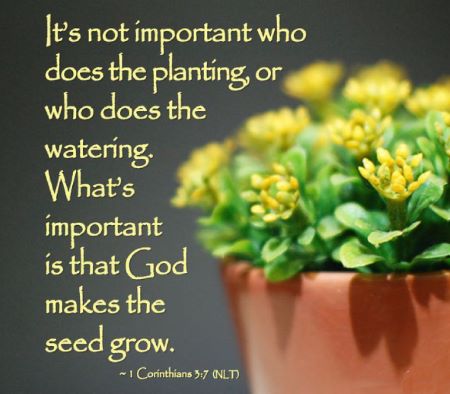
We Are the Theology We Consume
Sunday after Sunday [and on other Feast Days and Hol(y)i Days], we come together to hear the Word of God, to pray together, to express the joys, sorrow, and hope in our hearts through the words and music of hymns, and to share Communion at God’s Table (at which all are invited).
For many centuries, people have turned to clergy and other spiritual leaders for help bridging the gap between the human and the divine; and although the Protestant Reformation helped remove sole authority for “access to God” from Roman Catholic priests, many people, almost five hundred years later, still experience some level of disconnect between what happens during two hours of worship on Sunday morning and the other 166 hours of the week.

This is due in part because advertisers, politicians, employers, and others incessantly clamor for our attention; and it’s in part because our calendars are full with events and activities which distract us. And it’s not only become difficult to maintain our focus on scripture and spiritual messages, but it’s even more challenging to know what to dismiss and what to hold on to, what to toss aside and what to integrate, what to reject and what to cherish in our souls. It’s also due in part, because not all clergy have done a good job teaching their parishioners how to “cook for themselves.”
Pastor Chris Glaser once wrote that during the Beecher lectures at Yale Divinity School, Anna Carter Florence illustrated what congregations expect of preachers with an unforgettable metaphor: that of teenagers opening the refrigerator, looking at the foodstuffs therein, and complaining to one or both parents, “There’s nothing to eat.” What they really wanted to say was “I need you to make me something!”
The Columbia Theological Seminary professor compared this to some folks’ expectation that preachers will prepare everything to satisfy our spiritual hunger. And both parents and preachers try to fulfill the demands of such expectations, sometimes simply because we can or should, given our expertise and duty; but sometimes also because we feel needed and even powerful. But, just as parents need to equip kids with cooking skills for when they leave the nest, so pastors do best to equip parishioners with spiritual skills.
Anna suggested that right in front of those sitting in the pews are mini-refrigerators — Bibles, hymnals, prayer books — waiting to be opened in their pew racks. And many of them not only have theological-ish books at home and journals for journaling; but access to podcasts and blogs, spiritual guides and soul friends, retreat opportunities, and those Celtic “thin places” in nature waiting to be “opened,” if only we opened our minds and hearts and schedules to their spiritual possibilities.

Jonah did not want to go to Nineveh to proclaim God’s judgment, so he tried to get as far away from God as he could and went to Tarshish –– the end of the known world. I believe that there is no Tarshish anywhere in creation where God is not, that God is always and everywhere with us, and that because we are created with the divine spark, we can experience Emmanuel (God with us). And this connection to the divine that exists with us can be fostered, and help guide our holy intuition and insights, move us from our more myopic human truth to God’s boundless Truth, and help us experience a unity amidst diversity. We just need to learn how to “cook.”
Our “three parishes in two locations” met earlier this fall for the You Are Witnesses of These Things: Sharing the Story of Jesus book study (about how to more comfortably speak with others about our experiences of Jesus), and have more recently been meeting on Tuesday evenings for our The Church Cracked Open book study (about the Episcopal Church’s alignment with Empire and our increasing need to live in solidarity with the oppressed, so that we can seek the flourishing of all God’s children). Now we are “not obligated to complete this work; but neither are we free to abandon it.” There will be another book study in Lent (details to follow); so let’s get ready to cook some new recipes. And bring your liturgical aprons.








